W&L’s Recipe for Fellowship Success A record-setting year for nationally competitive fellowship awards at Washington and Lee University can be attributed to forward-thinking educators, hard-working students and a persistent, encouraging fellowships director.
“I’m so pleased to see more and more of our students applying for these awards, and I think there is every reason to believe that our numbers will only continue to grow as students see what their peers are accomplishing.”
~ Matthew Loar, director of fellowships
Washington and Lee University reported a record number of nationally competitive fellowship awards for the 2020-21 academic year, and student recipients attribute that success to the intensive guidance and support offered by university staff and faculty.
Those awards represent hundreds of thousands of dollars that will allow students to pursue big goals such as researching small-scale fishing in the South Pacific, investigating intervention services for people with disabilities in India, completing a master’s degree in scriptwriting in the U.K., teaching English in Austria and co-creating an anthology of stories in the Ecuadorian Amazon.
“Assembling a compelling fellowship application requires a lot of time, effort and emotional energy, and success is far from guaranteed,” said Matthew Loar ’07, W&L’s director of fellowships. “What therefore impresses me most about our students is not just that they are smart, accomplished and ambitious, but also that they are willing to take a risk and put in the work necessary to make themselves competitive for these fellowships. I’m so pleased to see more and more of our students applying for these awards, and I think there is every reason to believe that our numbers will only continue to grow as students see what their peers are accomplishing.”
Among the prestigious awards received in 2020-21 are nine Fulbright grants, seven Gilman Scholarships, two Boren Scholarships and six Critical Language Scholarships, all of which were increases from each of the previous nine years. Although the U.S. Department of State’s Bureau of Educational and Cultural Affairs has not yet announced its list of top Fulbright U.S. student-producing institutions for this past academic year, W&L has made that list for the three previous years running.
In addition, the 2020-21 academic year brought W&L a Schwarzman Scholar, a Beinecke Scholar, a Goldwater Scholar, a Davis Projects for Peace grant winner, and two recipients of National Science Foundation Graduate Research Fellowships. Additional awards may have been received by students who did not seek assistance through official channels at W&L.
The recipe for all of this success certainly includes intelligence and talent, but it is just as important to learn about the possibilities well in advance and begin to prepare for them by seeking support. It is also necessary to invest significant time and energy into preparing an application that makes the strongest possible case for the candidate.
In many cases at W&L, students hear about these opportunities long before they begin to prepare an application. Ana Estrada Hamm ’22, who received both a Boren and a Critical Language Scholarship (CLS) last year, first heard about those awards as a first-year student, when she had a conversation with her Arabic professor, Anthony Edwards, about a desire to someday work for the U.S. government. For James Ricks ’21, who was awarded a Fulbright and a Davis Projects for Peace grant, the seed was planted during information sessions for students participating in the Bonner Program.
Tanajia Moye-Green ’23, who received the Gilman Scholarship and a CLS, said the first step for her was to think deeply about her purpose in applying for any prize. She had long conversations about that with her faculty advisor, sociology professor Jon Eastwood, and one of her professors in the Shepherd Program, Howard Pickett.
“Ideally it is a reciprocal program, and you want to make sure that everyone is getting something out of it,” she said. “It helps you to not get pulled into the idea that you have to apply for everything and get as much stuff as possible to fill up your resume. That’s not really the best strategy to approach things. What skills do you want to gain, what knowledge, and how can these programs provide you with that?”
As soon as students connect with Loar, they have access to a deep well of resources. Loar, a 2007 graduate of W&L, has been the university’s director of fellowships since 2019. As a 2006 Beinecke Scholar, a recipient of a 2009 American Graduate Fellowship and a reader for both the Gilman and Critical Language Scholarship, he is well-versed in the fellowship applications process.
Prior to Loar’s arrival, the fellowship advising process was decentralized, with different faculty and staff liaisons for many fellowships. Being the sole advisor for fellowships allows Loar to get to know each student’s story, which strengthens their applications. But he is quick to point out that students also benefit from a foundation built by his predecessors.
“I think Gwyn Campbell as Associate Dean of the College did an excellent job of amplifying fellowships on this campus and laying the groundwork to create a culture of fellowships, so to some extent I am reaping the fruit of her labors,” he said. For each of the three years that Jon Eastwood was the Fulbright Program advisor for W&L, there were a record number of applicants and, two years ago, a record number of recipients. “I think Jon created this upward trajectory,” Loar said.
If a student is seriously interested in pursuing an opportunity, Loar will not rest until he’s done everything within his power to help. That often means a significant amount of face time. During the 2020-21 academic year alone, Loar held nearly 750 meetings with 250 individual students. In some cases, he met with a student up to 17 times.
“I tell the students I will work with them as many times as they can tolerate on as many drafts of an application that they might possibly want,” Loar said. “Some do a couple rounds of revisions; some do dozens.”
Moye-Green recalls that Loar pushed her to narrow the focus of her application essay and “capture all of the complexities and nuances.”
“I went from saying simply ‘I am resilient’ to saying something like ‘I am a Black low-income, first-generation student at W&L’ and specifically detailing how that has affected me in my education here,” she said.
Estrada Hamm said she wrote more drafts than she can count, in part because she did not receive the Boren the first time she applied. She said Loar counseled her through being waitlisted, advising her to gain more experience and try again. She got a Virtual Student Federal Service internship with the U.S. Agency for International Development and used her experience working with religious and ethnic minorities on the Middle East desk to inform her next application.
“I wasn’t discouraged because Dr. Loar was like, ‘We just have to keep trying,’” she said.
Ricks noted that W&L students are often under immense pressure with many demands on their time, so it is helpful to have a persistent director of fellowships. “When I was struggling to take on any more commitments during COVID, he was really supportive. If I didn’t talk to him, he’d be in my inbox like ‘Hey, how are you? Is this still on the table? You are a really good match for this.’”
Both Ricks and Estrada Hamm are thankful for support from outside the Provost’s office, too. Ricks credited faculty and staff in the Shepherd Program, the Center for International Education and the English Department for supporting and encouraging him along the way. Estrada Hamm said Edwards’ knowledge of institutions known for teaching Arabic well directed her toward a summer program in Imman, Jordan, and politics professor Stu Gray wrote one of her recommendation letters.
Some students even benefit from assistance from outside Lexington. Alumnus John Christopher ’09, with whom Ricks has worked at the nonprofit Oda Foundation in Nepal, wrote a letter for his Fulbright application.
All of this support combines to build a framework from which students can better prepare not only for a fellowship application, but also for a fulfilling life after they leave W&L.
“I would say you have to really know and believe in yourself,” Moye-Green said. “As cheesy as that sounds, if you know what you’re dreaming of doing and the career you’d like to pursue, things start to fall into place,” she said.
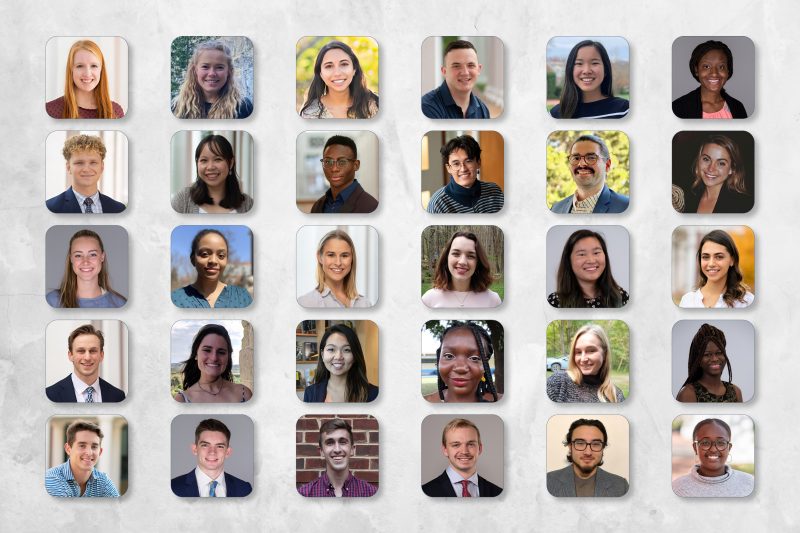 These students have been part of a record-setting year for fellowship awards at Washington and Lee.
These students have been part of a record-setting year for fellowship awards at Washington and Lee.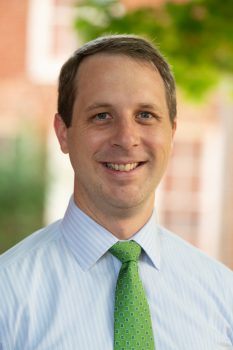 Matthew Loar ’07, director of fellowships
Matthew Loar ’07, director of fellowships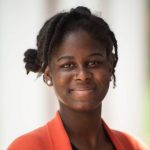 Tanajia Moye-Green ’23
Tanajia Moye-Green ’23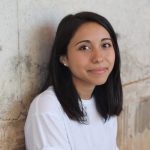 Ana Estrada Hamm ’22
Ana Estrada Hamm ’22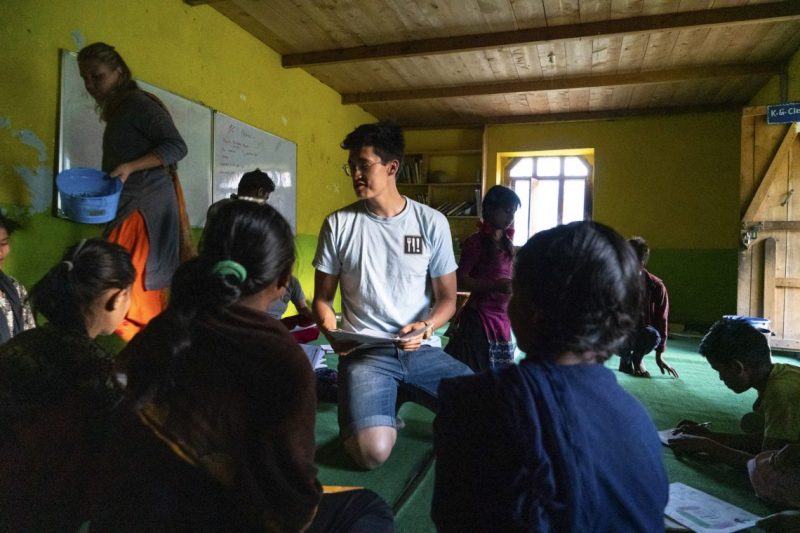 James Ricks ’21 works with children in Odanaku, Nepal. John Christopher ’09, with whom Ricks has worked at the nonprofit Oda Foundation in Nepal, wrote a letter for his Fulbright application.
James Ricks ’21 works with children in Odanaku, Nepal. John Christopher ’09, with whom Ricks has worked at the nonprofit Oda Foundation in Nepal, wrote a letter for his Fulbright application.
You must be logged in to post a comment.